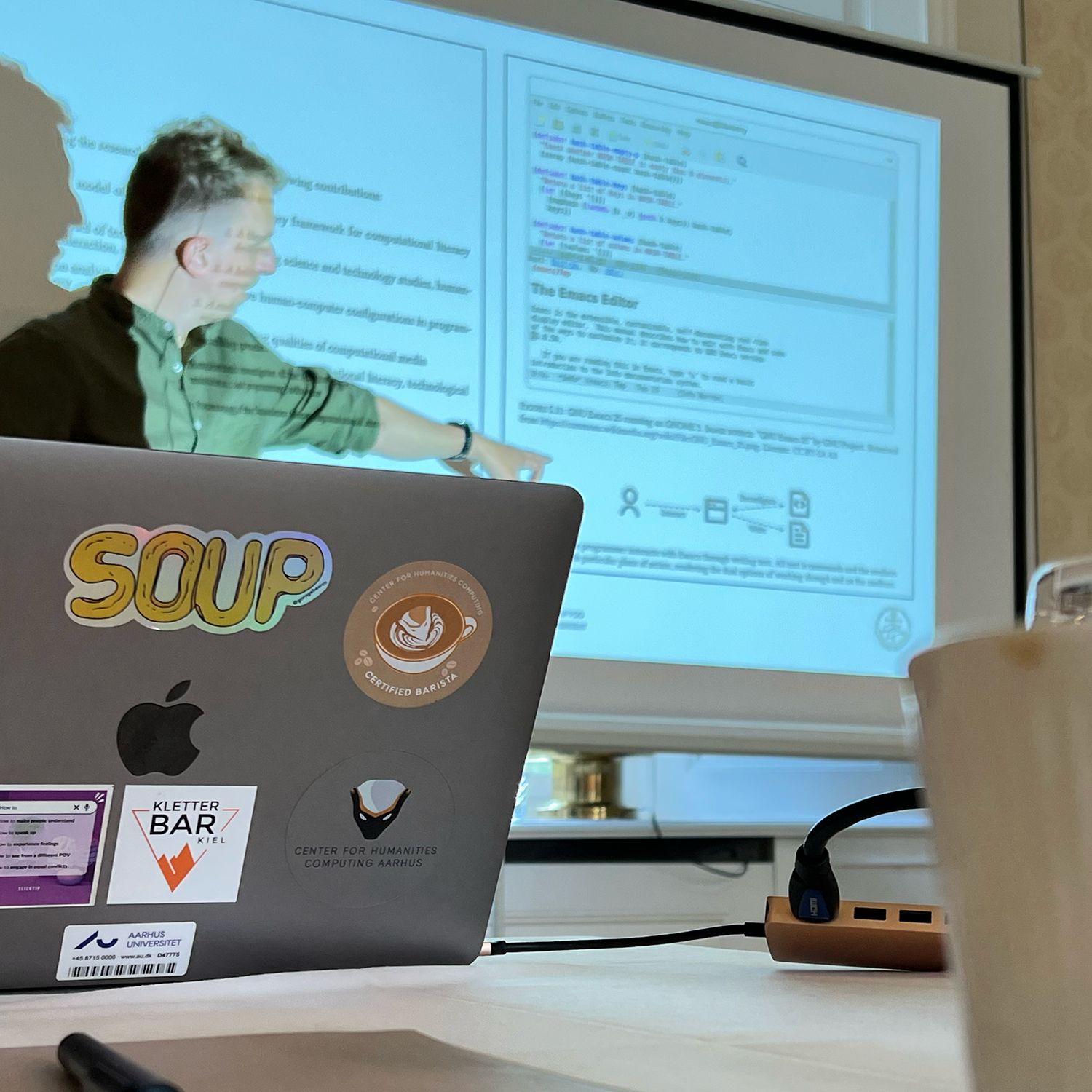Ph.d. Defence: Bjarke Vognstrup Fog
"Casting the runes and parsing them: Un-packing software mediation, interactions, and computational literacy in non-conventional programming configurations"
Oplysninger om arrangementet
Tidspunkt
Sted
Aarhus University, Building 5008, Room 138, Helsingforsgade 8, 8200 Aarhus N

Assessment Committee
- Associate professor Minna Pakanen, Department of Digital Design and Information Studies, Aarhus University
- Senior lecturer Kate Howland, Interaction Design (Informatics), School of Engineering and Informatics, University of Sussex, United Kingdom
- Professor Andreas Mühling, Institut für Informatik, Kiel University, Germany
Supervisors
- Associate professor Clemens Nylandsted Klokmose, Department of Computer Science, Aarhus University
- Professor Ole Sejer Iversen, Department of Digital Design and Information Studies, Aarhus University
The dissertation will be available for reading in a digital version before the defence following a statement from the borrower promising to delete the file afterwards. If you wish to read the dissertation please contact Bjarke Vognstrup Fog - bfog@cc.au.dk.
The defence is scheduled for three hours and is open to the public. All are welcome.
Abstract:
What is the right media for computing? And how do we include the "non-conventional programmers"; the researchers, humanities students, and others who increasingly not just could but should know how to program?
This dissertation is an interdisciplinary investigation of computing and the mediating qualities of software for programming. Drawing from computing education, new media studies, human-computer interaction, and literacy research, the dissertation takes seriously the social, cultural, and material lifeworlds of people to better understand the role of the (computational) medium and its qualities.
Through a series of qualitative and design-oriented studies, the dissertation further explores the crises, emergent workarounds, and (dis)confirmatory experiences of those who engage with programming in new media. Finally, the dissertation provides a theoretical framing in which it is argued that computational literacy goes hand in hand with identity, self-concepts, and materially grounded competencies.
